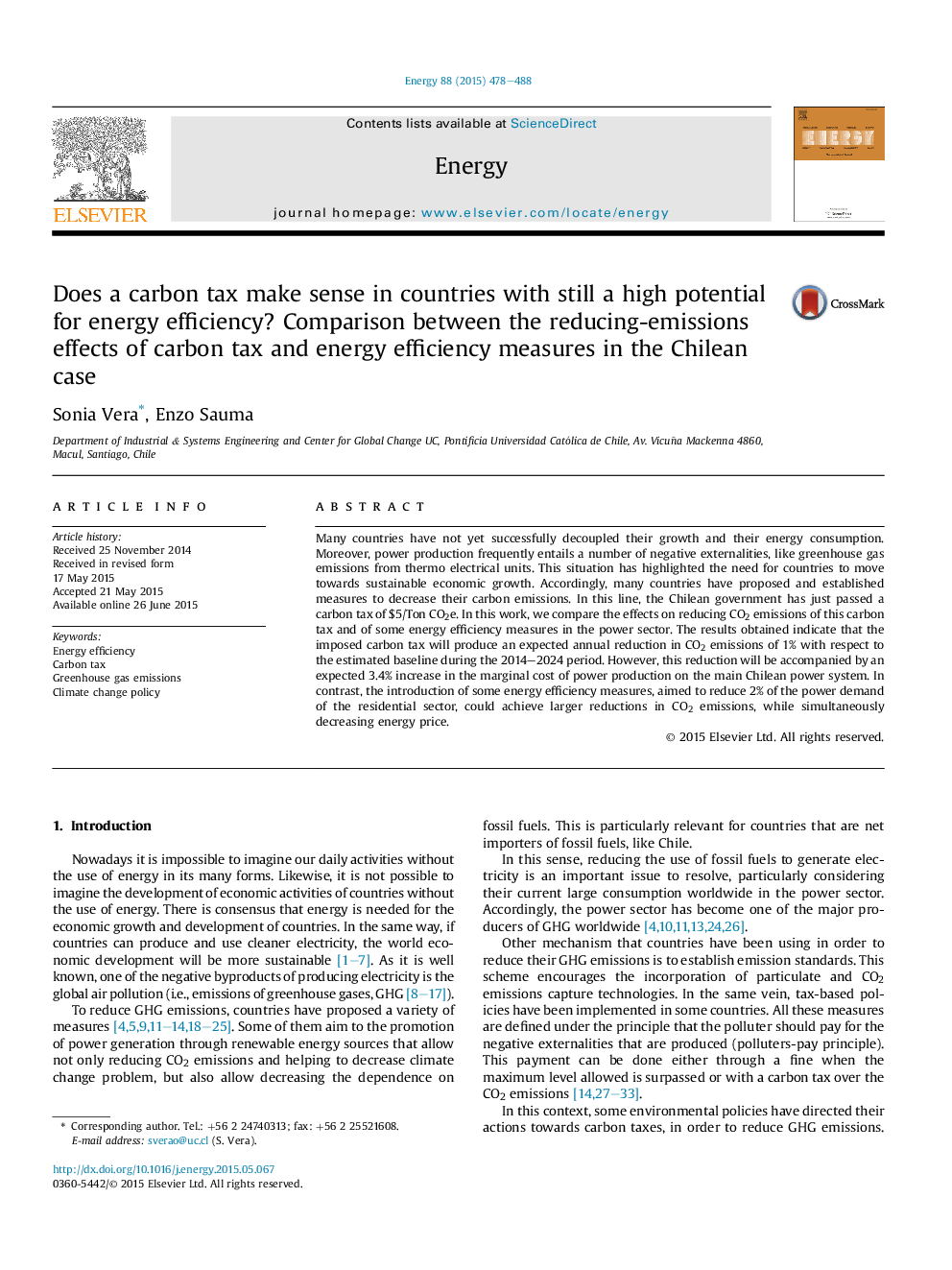| Article ID | Journal | Published Year | Pages | File Type |
|---|---|---|---|---|
| 1732160 | Energy | 2015 | 11 Pages |
•We estimate CO2 emission reductions due to a carbon tax and EE measures in Chile.•We simulate the main Chilean power system with diverse levels of carbon tax and EE.•Energy efficiency measures could achieve better results than carbon tax in Chile.•The carbon tax imposed in Chile reduces CO2 emissions in 1% in the 2014–2024 period.•The carbon tax imposed in Chile increases system marginal cost in 3.4% in 2014–2024.
Many countries have not yet successfully decoupled their growth and their energy consumption. Moreover, power production frequently entails a number of negative externalities, like greenhouse gas emissions from thermo electrical units. This situation has highlighted the need for countries to move towards sustainable economic growth. Accordingly, many countries have proposed and established measures to decrease their carbon emissions. In this line, the Chilean government has just passed a carbon tax of $5/Ton CO2e. In this work, we compare the effects on reducing CO2 emissions of this carbon tax and of some energy efficiency measures in the power sector. The results obtained indicate that the imposed carbon tax will produce an expected annual reduction in CO2 emissions of 1% with respect to the estimated baseline during the 2014–2024 period. However, this reduction will be accompanied by an expected 3.4% increase in the marginal cost of power production on the main Chilean power system. In contrast, the introduction of some energy efficiency measures, aimed to reduce 2% of the power demand of the residential sector, could achieve larger reductions in CO2 emissions, while simultaneously decreasing energy price.
